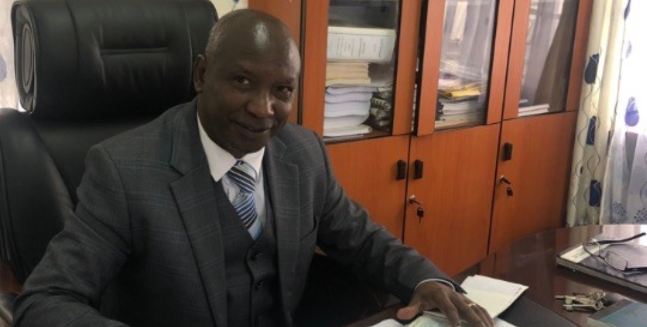DPP’s decision to withdraw charges against Tanathi CEO Fredrick Tito Mwamati and officials from Perma Structural Engineering exposes a troubling pattern of corruption, as allegations of kickbacks and procurement fraud in the Ksh 292 million Kenanie Leather Industrial Water Park project come to light.
The Office of the Director of Public Prosecutions (ODPP) faced critism after withdrawing a high-profile graft case related to the misappropriation of Ksh 292.7 million in a water supply project.
The case centers on the Kenanie Leather Industrial Water Park project in Kitui County and involves several key figures, including Fredrick Tito Mwamati, CEO of the Tanathi Water Works Development Agency (TAWWDA).
Alongside Mwamati, nine other individuals, including officials from Perma Structural Engineering Company Ltd, have been implicated in irregular procurement and fraud.
The tender in question, which saw bids from 14 companies, was awarded to Perma Structural Engineering Company Ltd, a company that many have criticized for being non-responsive.
The Ethics and Anti-Corruption Commission (EACC) launched an investigation into the tendering process, alleging that Mwamati and his associates received substantial kickbacks.
The tender, intended to fund phases I and II of the water supply project, became embroiled in allegations of corruption and procurement irregularities, making it one of the most controversial cases handled by the EACC in recent years.
In a nine-page affidavit filed at the Kitui Anti-Corruption Court, the EACC expressed grave concerns about the withdrawal of the charges by the ODPP.
The commission accused the ODPP of acting in bad faith and disregarding public interest by dropping charges against individuals involved in such a large-scale misappropriation of public funds.
They further claimed that the withdrawal of the charges was at the request of the suspects, including Mwamati, raising questions about the transparency and fairness of the judicial process.
The case’s withdrawal is seen as part of a troubling trend where high-profile graft cases are dropped, often without a comprehensive explanation from the ODPP.
Just earlier this year, the ODPP faced backlash for dropping charges in the Sh42 billion Geothermal Development Company fraud case, despite EACC presenting what they claimed was compelling evidence.
In both cases, the decision to drop the charges has led to growing frustration among anti-corruption advocates and the general public, who believe that justice is being compromised.
This controversy has sparked a wider debate about the role of the ODPP in Kenya’s fight against corruption.
Many critics argue that the frequent withdrawal of cases, especially involving high-level officials, suggests a pattern of political influence and reluctance to prosecute powerful individuals.
The public is now questioning the ODPP’s commitment to fighting corruption, especially when investigations by bodies like the EACC are undermined by such decisions.
With Kenya’s anti-corruption efforts already struggling, the decision to withdraw the Kenanie Leather Industrial Water Park case further erodes public confidence in the justice system.
There are growing calls for greater accountability and transparency in how the office handles high-profile corruption cases.
Many are demanding an explanation for why cases involving millions of shillings in public funds are being quietly dismissed, allowing those responsible to evade justice.





















Add Comment